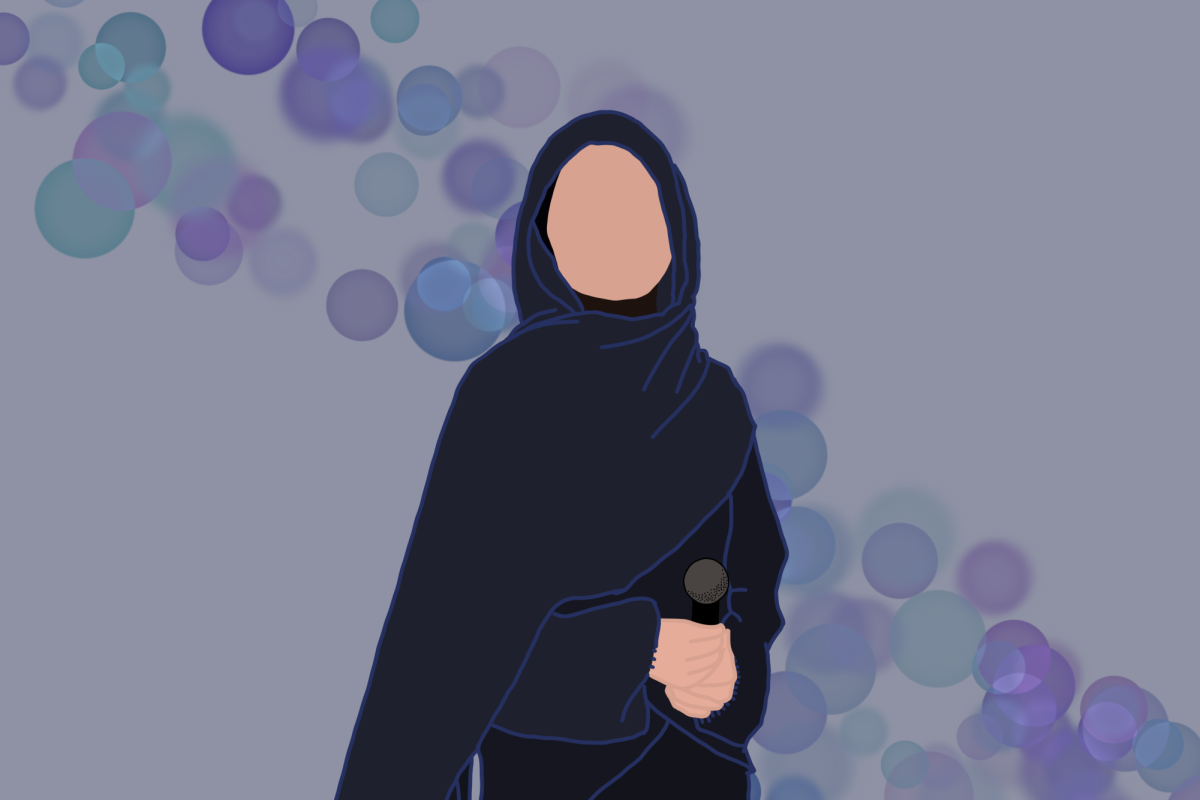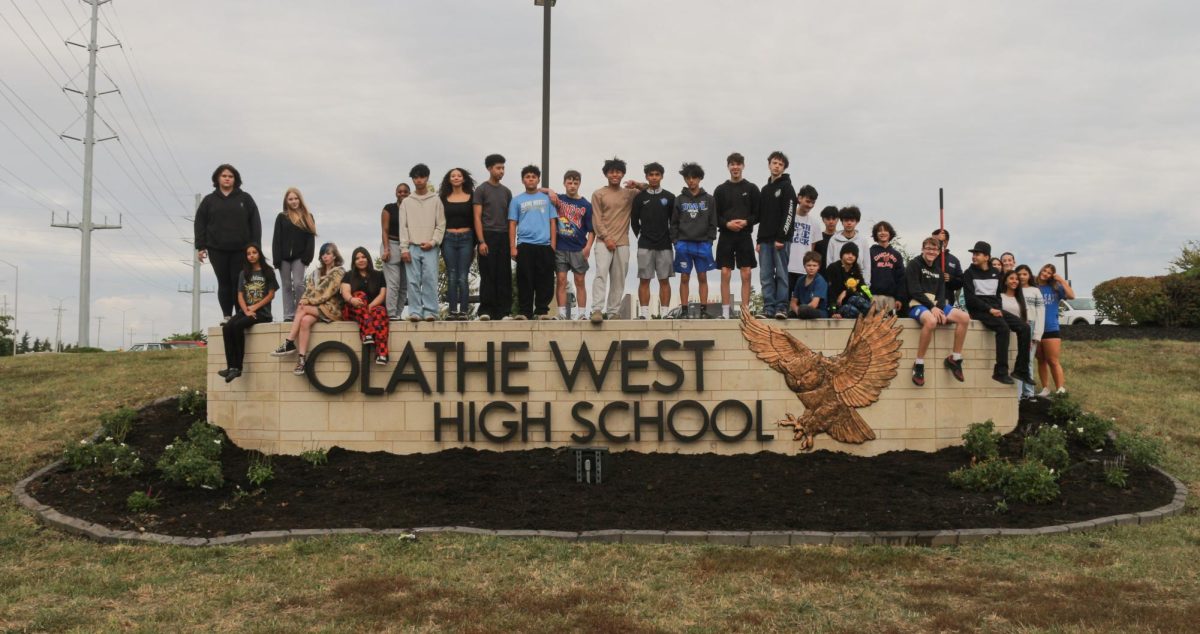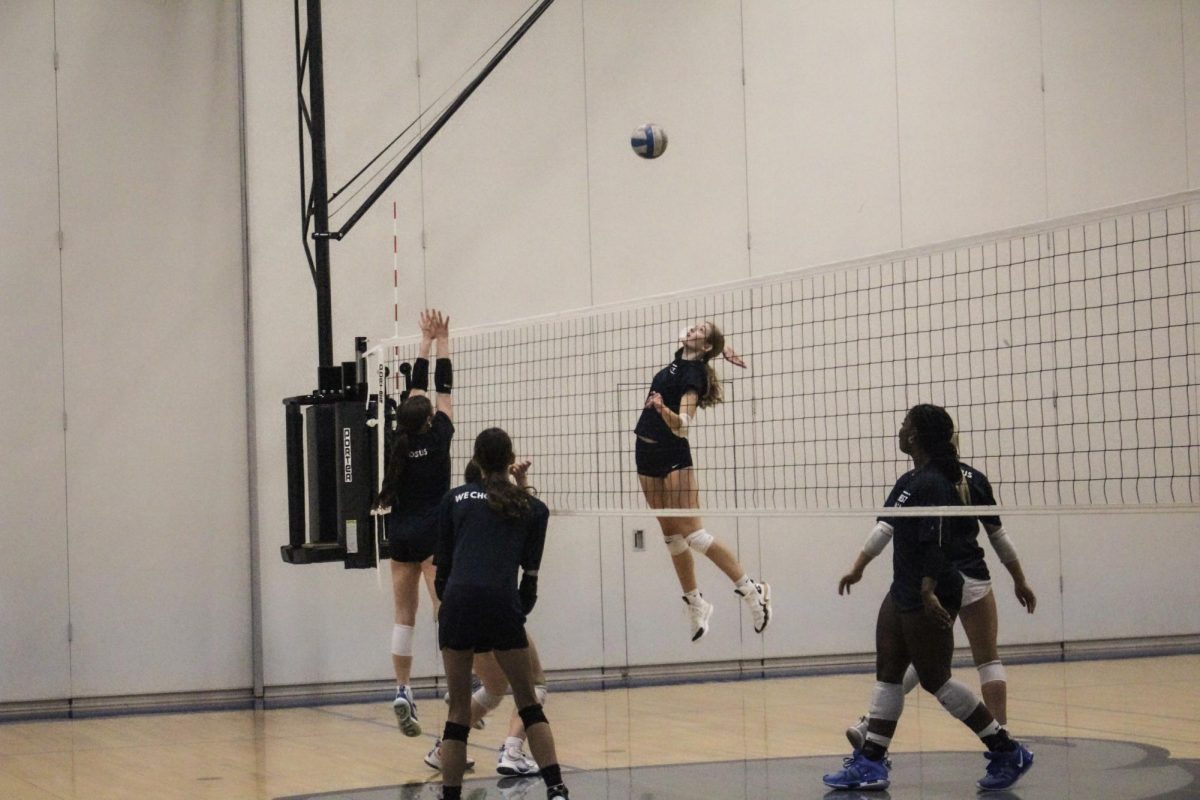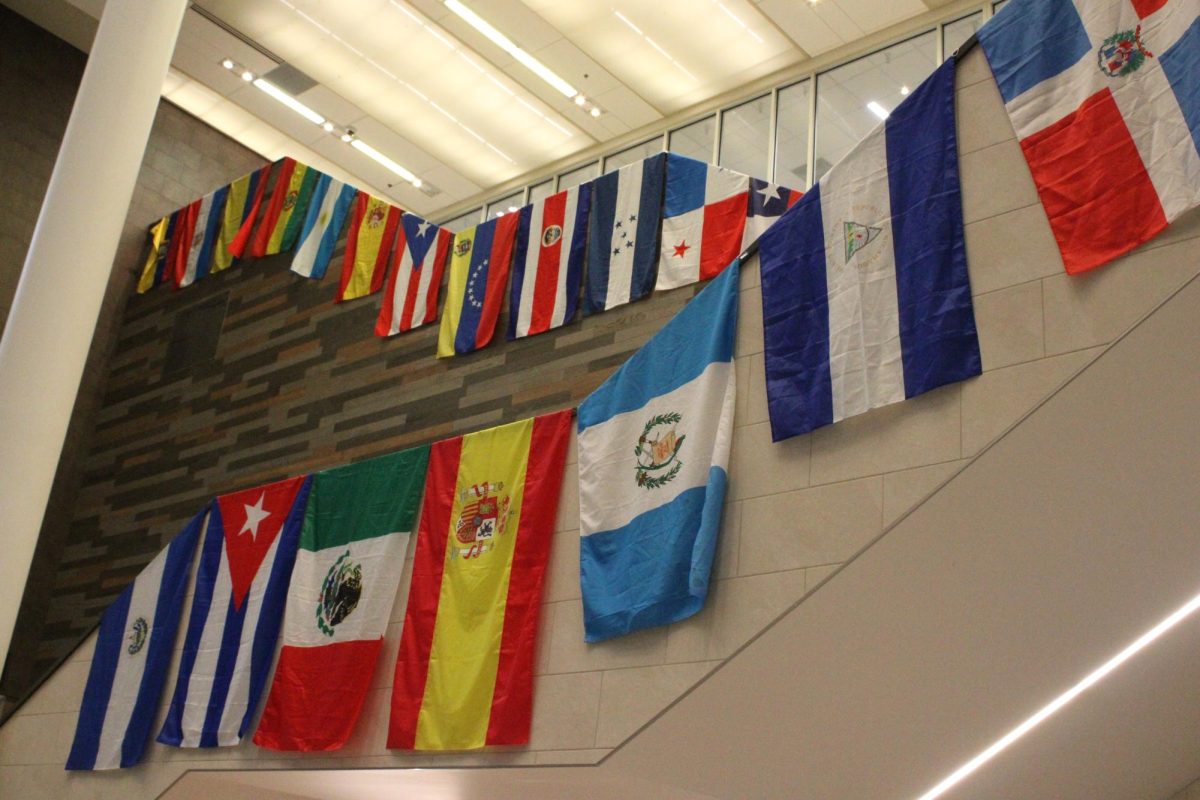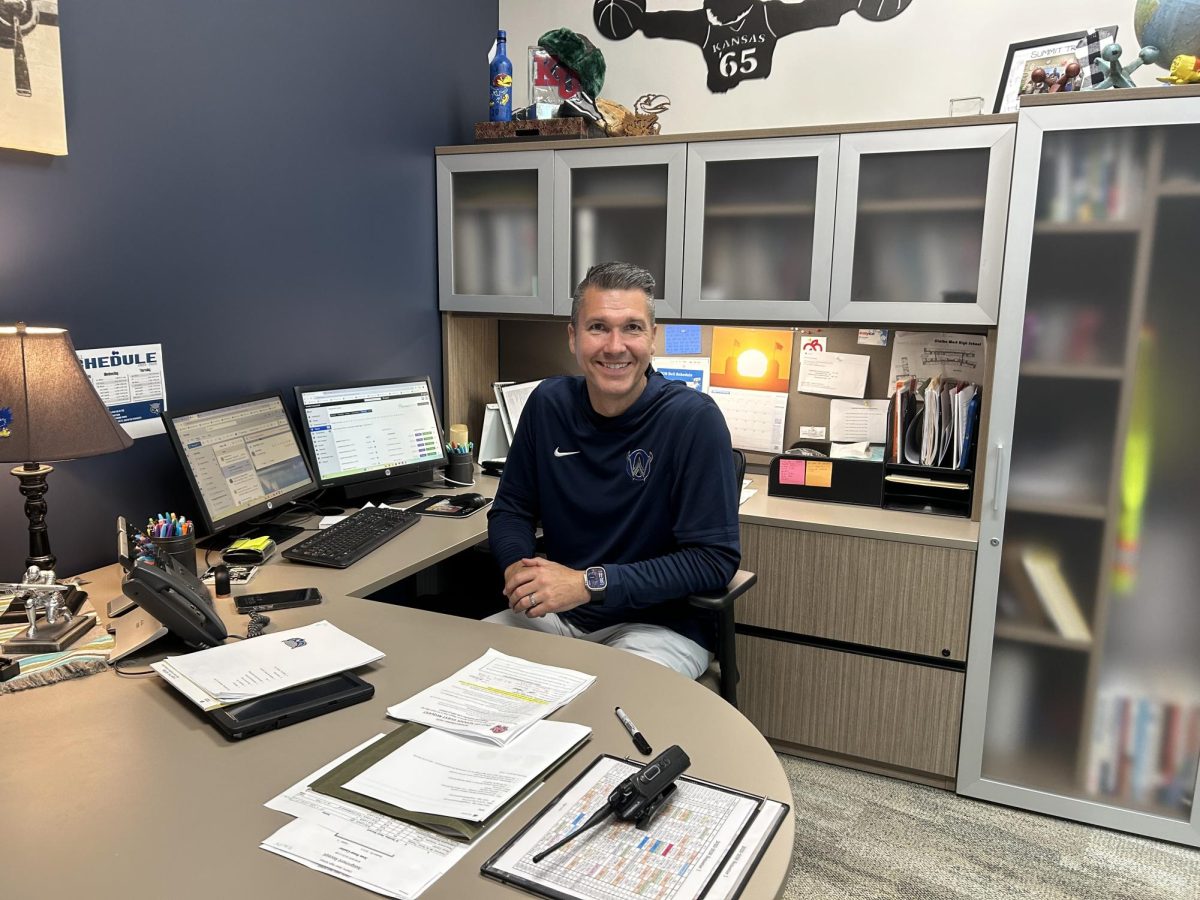You may have seen her walking in the halls. You may have seen her at lunch. You may have even seen her in your own classroom. To you, she might be ‘that one girl with the headscarf.’ The truth is that senior Fatima Khalid is much more than that. If you had gotten to know her, she meticulously coordinates every outfit in conjunction with her headscarves. She always wears a beautifully decorated gold ‘F’ around her neck, often partially hidden by her scarf. She explores different patterns, textures, and styles to express her femininity and beliefs. She is composed of her unique experiences that led to her outstanding leadership today. Khalid is the only hijabi at Olathe West and is very proud of her Pakistani heritage and her Muslim faith. She started wearing the hijab, a common expression of the Muslim faith, in middle school. Her story as a hijabi and her experiences provide a new perspective that deserves to be shared.
“I am the only hijabi woman in my entire high school and I’ve been the only hijabi in my middle school and the only Muslim girl in my elementary school. So I have been probably singled out for a majority of my education so far, and I’ve had to learn how to fit in, but not completely erase my own identity with it,” Khalid said.
Whether it be for faith, gender, a different ability, or other reasons, everyone has been singled out in some way, shape, or form. Khalid’s unique experiences among her peers make her who she is today. Determining how to fit in while maintaining pride in expressing one’s beliefs can often feel like walking a tightrope along a city’s skyline: the pressure is on.
“Whenever I first started wearing [the hijab]…, I was literally the center of attention in the worst way possible. I was glared at, I was ignored in groups, I was just kind of looked at weirdly. And so getting to high school, I knew that I couldn’t go my all four years like this,” Khalid said.
Khalid learned that something needed to change with regards to how she put herself out there. By taking the first step to expose herself and advocate for her work, she was better able to contribute to a team of peers who might not have seen beyond her headscarf and rather chose to keep to themselves. Khalid serves as a shining example of one’s struggle and perseverance in advocating for themselves and changing the lives of others while they’re at it.
“I also didn’t correct anyone on how to say my name. They called me ‘fuh-TEE-mah’ or ‘FAT-i-ma’ or anything else except for ‘FAHTH-i-mah’,” Khalid said.
Who hasn’t second guessed themself before asking a peer for help with a specific task for the sole reason of not knowing their name, or how to pronounce it?
This is an experience shared by almost everyone, and the fact of the matter is that tasks will likely become easier with an extra set of skills. The very best thing to do is ask. Just ask. One’s name is how the world knows them best, and everyone can agree that they’d like to be recognized and acknowledged by their peers.
However, it’s not just what one calls their peer that’s a shortcoming in today’s society. There is a specific issue that everyone has heard of- one that Khalid has a lot to say about with regards to her own experience facing it.
“Back to middle school- this is where I first started wearing [the hijab]- I got bullied and picked on a lot, and people would taunt me and say that they were going to take it off in the hallway, or try and pull it off of me. And it got so bad to the point where I got depression from it, and that really affected my mental health,” Khalid said.
The effects of bullying can negatively affect an individual’s perception of themselves and the world around them. Fatima’s struggles in fitting in while committing to her cultural and religious identity served as one of the many adversities she faced in school. Although not all of her peers were treating her like this, the way external influences can change someone’s perspective at a critical moment in their lives can be incredibly dangerous to their health. The effects of bullying can be seen anywhere. They’re riddled along the walls of bathroom stalls. They take the form of thousands of ones and zeros. They turn us black and blue.
“I would only ever wear neutral color hijabs so I could fit in…and I didn’t venture out with any of the clothing I wore. I didn’t do anything of the sort all throughout middle school,” Khalid said.
Like Khalid in her middle school years, many high schoolers reflect on themselves from just a few short years before and realize how far they have come from trying to fit into such a narrow box. However, no flower in a field of asters is the same.
“I’ve stepped out of my comfort zone with different colored stuff and whatnot, like hijabs, fabrics, prints, like all of that…[The hijab’s] a part of who I am, but it’s not my entire identity,” Khalid said.
Middle school is often a learning curve for young individuals to become who they are, and for Khalid, it was no different. But by high school, she was ready to hit the ground running.
“I’ve had to learn how to put myself out there, which is why I ran for student council office my sophomore year, and I was the only junior on the council. And then the following year I went for vice president and I landed both roles. And so I feel like that’s helped make an impact,” Khalid said. “I could use my position to make a bigger impact since people are already going to be looking.”
Khalid’s work is no less than inspirational. Her growth throughout her school career from being afraid of receiving attention to harnessing that attention for good is truly incredible, and it shows. Khalid now proudly serves as StuCo vice president, Asian Student Union co-founder, and a leader as a part of NHS. She is an important role model for future and existing Owls who may not yet understand that it is okay to reach out and to advocate for oneself.


